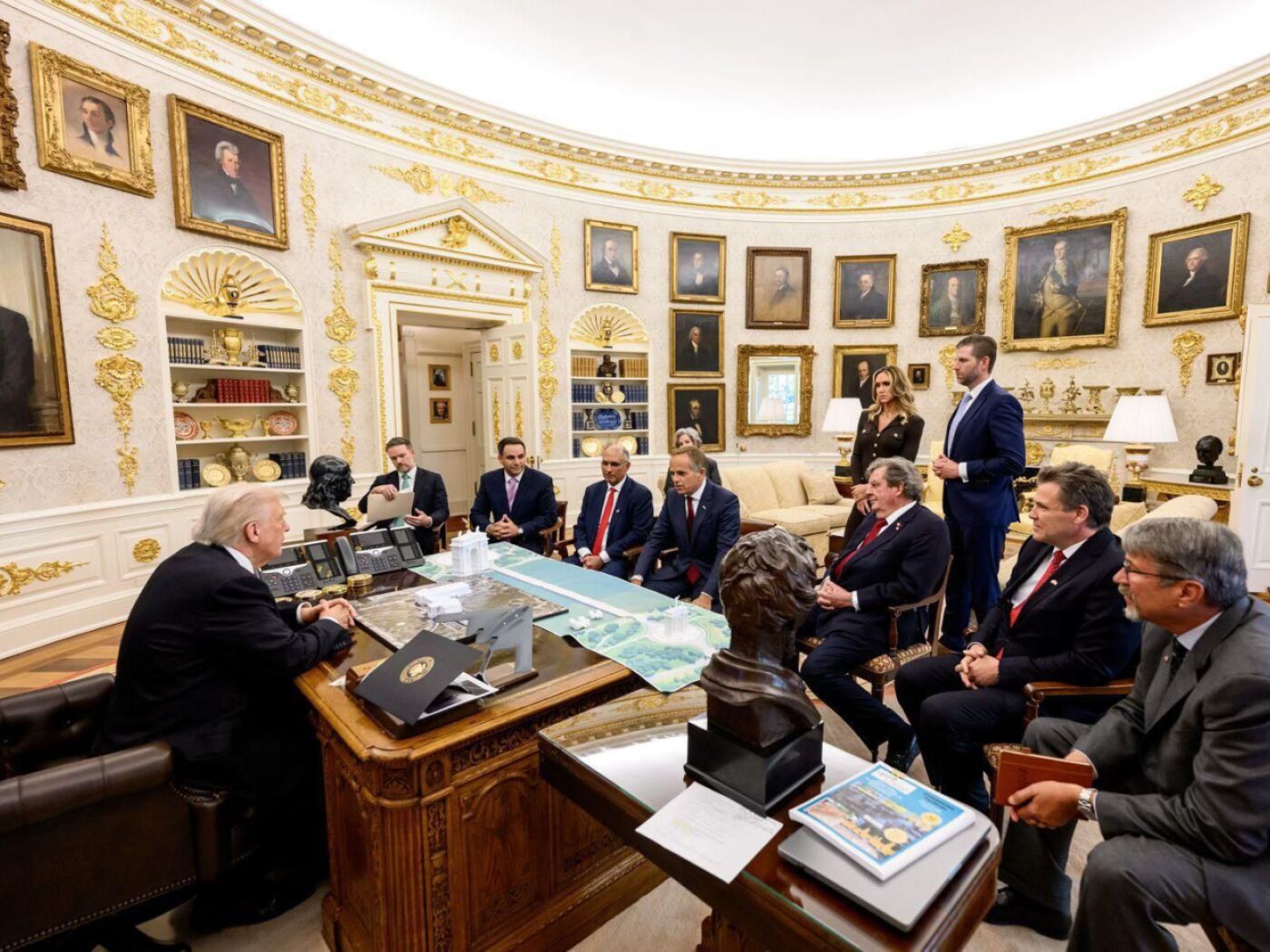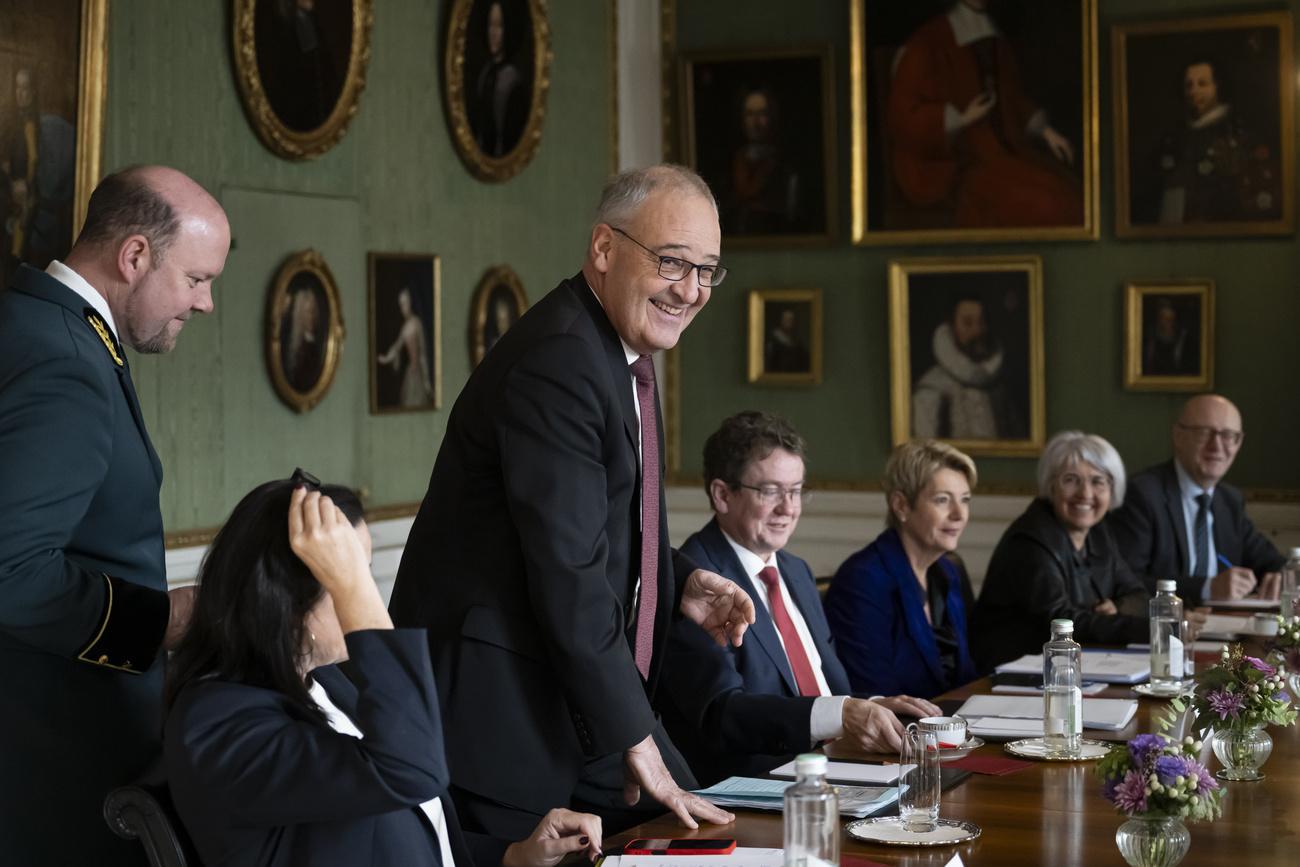
Swiss politicians decry ‘gold bar diplomacy’ in Trump trade deal

Swiss euphoria at securing lower US trade tariffs has given way to a backlash over “oligarch diplomacy” and the role executives played from companies including Rolex and Richemont.
An outline agreement Washington and Bern announced this month would reduce average US levies on Swiss industrial exports from 39 per cent to 15 per cent. Swiss officials lauded the pact as a significant achievement after months of lengthy negotiations and at times deadlock with the White House.
However, the manner in which the deal was reached has drawn criticism at home that may delay the political process needed to conclude the full agreement and could threaten its ratification.

The agreement on the broad terms of a tariff deal followed a visit to the White House by top executives from watchmaker Rolex, Cartier owner Richemont, commodity trader Mercuria, private equity firm Partners Group, shipping company MSC and refiner MKS PAMP.
+ Swiss CEO discusses attending Oval Office meeting
The executives met President Donald Trump and gave him a specially engraved gold bar and a Rolex clock as they sought to impress upon the president the damage the 39 per cent tariffs, the highest imposed on any developed economy, were wreaking on the European nation.
The president of Switzerland’s Green party Lisa Mazzone called the deal a “poisoned chalice” and said her country obtained the concessions through “dubious methods and golden handouts”. The Greens argue the pact sacrifices Swiss agriculture by opening up the heavily protected sector to imports of US products such as beef.
+ Tariffs: will Swiss supermarkets be inundated with hormone-filled beef?
‘Oligarch takeover’
Samuel Bendahan, co-president of the Social Democrats parliamentary group, said it was unacceptable that foreign and economic policy was “negotiated by billionaires and CEOs of corporations in secret meetings”. Local press have described the so-called gold bar diplomacy as “unseemly” and warned of an “oligarch takeover”.
The rightwing People’s party has been much more supportive of the deal, while other media have characterised the economic diplomacy as pragmatic.

More
Switzerland secures US tariff rate cut to 15%
Benjamin Mühlemann, co-president of the centrist pro-business FDP, said while the party had concerns about concessions given to the US, “the fact that politics and business have worked hand in hand to reach such an agreement is fundamentally positive”.
Criticism has also emerged over how much information on the political negotiations was shared with the businessmen.
‘Very close to corruption’
“There is a sense from some in Switzerland that this was very close to corruption,” said Daniel Woker, a former Swiss ambassador. “I am not sure it shows Switzerland at its best.
“It shows wheeling and dealing but that is not how we like to think of ourselves as a pillar of well-organised, lawful international relations.”
“It was the gold and the Rolex — and the photo,” said David Bach, president and political economy expert at the IMD business school in Lausanne. “There is discomfort with the optics of giving opulent offerings like that very publicly in a country which generally values being more understated and humble on the international stage.”
Trade deal still at early stage
Divisions over the agreement could hold up its passage in the Swiss parliament. Under Switzerland’s highly devolved system, the trade deal is still at a very early stage.
The government needs a mandate from parliament to start formal negotiations with the US; any deal negotiated with Washington would then be subject to votes in both chambers of parliament. It could also end up being put to a nationwide referendum.
Even in the best-case scenario, the agreement might not reach parliament until late 2026, though the tariff rate of 15 per cent will take effect in the meantime pending ratification of the deal.
Bern had been eager to secure an accord after the EU and UK clinched early deals with Washington. Swiss negotiators, led by president and finance minister Karin Keller-Sutter, believed they were close to a compromise over the summer that would have led to duties of about 10 per cent, only for the White House to impose a 39 per cent tariff in August, shocking politicians and business leaders.

More
Is offering a Rolex to a foreign official considered bribery under Swiss law?
With Switzerland having abolished its own industrial tariffs, and the US its largest export market for watches, chocolate and machinery, Trump pointed to the roughly $39bn US trade deficit as justification for the higher levy.
Damned if they did…
As the stalemate dragged on, some in Bern had pushed for greater private-sector involvement, suggesting recruiting figures such as the Swiss president of Fifa, Gianni Infantino, who has friendly ties to Trump.
“They were damned if they did and damned if they didn’t,” said one government official. “Before this everyone wanted the private sector to help with the situation. I think the real problem was the government communication could have been better with the public.”
Swiss economy minister Guy Parmelin, who took over negotiations from Keller-Sutter, has rejected criticisms of the deal, saying it is the “best we could achieve” and “we haven’t sold our souls to the devil”.
Alfred Gantner, the co-founder of Partners Group who was present at the White House meeting, said public-private collaboration delivered “a dearly needed resolution”.
“It’s a testament to the professionalism and openness of Swiss leadership . . . who’ve ensured that the private sector can engage transparently and constructively in advancing our country’s interests,” he said.

More
Our weekly newsletter on geopolitics
A ‘private initiative’
MKS PAMP chief commercial officer Omar Liess said: “Collaboration between the public and private sectors isn’t unique to Switzerland; it’s an approach that regularly yields excellent results when done well.”
Rolex declined to comment, while Mercuria, Richemont and MSC did not respond to requests for comment.
The economy ministry said the executives’ visit was a “private initiative” supported by the State Secretariat for Economic Affairs (SECO) “but took place independently of the Federal Council’s involvement” in trade negotiations.
“At their request, business executives received a general briefing from SECO prior to the meeting on the status of the discussions, although no details were disclosed. SECO did not disclose any confidential information at any time,” it said.
Copyright The Financial Times Limited 2025

More
Lessons from the US-Swiss tariff dispute: when the ends justify the means

In compliance with the JTI standards
More: SWI swissinfo.ch certified by the Journalism Trust Initiative



























You can find an overview of ongoing debates with our journalists here . Please join us!
If you want to start a conversation about a topic raised in this article or want to report factual errors, email us at english@swissinfo.ch.